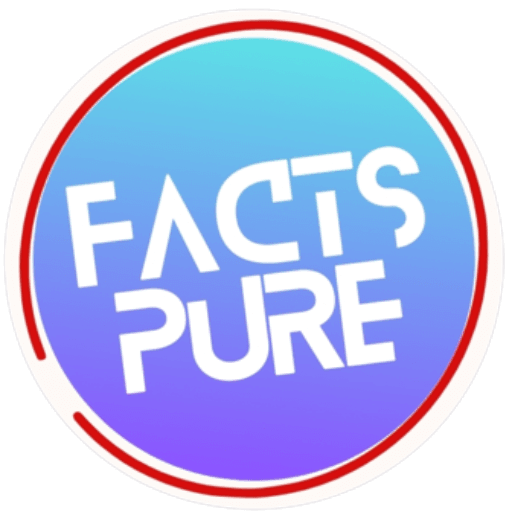Car Insurance Ontario High Risk: Your Complete Guide to Finding Affordable Coverage
Are you struggling to find reasonable car insurance rates after being labeled “high-risk” in Ontario? You’re not alone. Thousands of drivers face this challenge every year, wondering if they’ll ever find affordable coverage again. The good news? You have choices, and this direct will walk you through everything you require to know.
Read More: Best Insurance Companies That Accept High Risk Drivers
What Makes You a “High-Risk” Driver in Ontario?
Being designated as a high-risk driver in Ontario isn’t a life sentence – it’s a temporary classification that insurance companies use based on specific factors in your driving history. Understanding why you’ve been classified this way is the first step toward finding better rates.
Common Reasons for High-Risk Classification
- Multiple at-fault accidents within the past 6 years
- Serious activity infringement like DUIs or rash driving
- License suspensions or driving without insurance
- Multiple speeding tickets or traffic infractions
- Insurance policy cancellations due to non-payment
- G1 or G2 drivers with infractions on their record
- Gaps in insurance coverage or history
- Multiple insurance claims in a short period
Many American visitors or new residents from the US search for this information because Ontario’s insurance rules differ significantly from American systems. If you’ve recently moved from the US to Ontario or are planning to, you’ll need to understand how your driving history transfers across the border.
How Insurance Companies Calculate High-Risk Premiums
Insurance companies utilize complex calculations to decide your hazard level and comparing premiums. In Ontario, the Financial Services Regulatory Authority (FSRA) oversees insurance practices, but companies still have flexibility in setting rates for high-risk drivers.
Key Factors That Influence Your Premium
- Driving history: The severity and recency of infractions
- Type of violation: DUIs impact rates more than speeding tickets
- Vehicle sort: Sports cars regularly fetched more to guaranteed than sedans
- Address: A few postal codes have higher mischance or burglary rates
- Age and driving experience: Younger high-risk drivers face steeper premiums
- Previous claims history: Frequency and cost of past claims
Top 5 Insurance Companies for Car Insurance Ontario High Risk
Not all insurance companies handle high-risk policies the same way. These five companies specialize in providing coverage for drivers with complicated histories:
- Facility Association: Ontario’s insurer of last resort for high-risk drivers
- Jevco Insurance: Specializes in non-standard auto insurance
- Pafco Insurance: Offers tailored high-risk policies
- Coachman Insurance: Known for working with drivers with multiple infractions
- Echelon Insurance: Provides coverage for many high-risk situations
What to Expect: Premium Ranges Based on Risk Factors
| Risk Factor | Average Premium Increase |
| DUI conviction | 100-200% |
| At-fault accident | 30-60% |
| Multiple speeding tickets | 20-50% |
| License suspension | 40-80% |
| New driver with infraction | 60-100% |
How to Lower Your High-Risk Insurance Premiums
Being labeled high-risk doesn’t cruel you’re stuck with cosmic premiums until the end of time. Take these proactive steps to gradually reduce your rates:

Immediate Actions
- Compare quotes from multiple providers specializing in high-risk coverage
- Consider higher deductibles to lower monthly premiums
- Bundle your policies (home and auto) when possible
- Install safety devices like anti-theft systems and dashcams
- Take a defensive driving course approved by the Ministry of Transportation
Long-Term Strategies
- Maintain a clean driving record for at least 3 consecutive years
- Choose vehicles with lower insurance rates (sedans vs. sports cars)
- Pay premiums annually instead of monthly to avoid administrative fees
- Review your coverage needs and adjust unnecessary add-ons
- Ask about graduated forgiveness programs as your record improves
Understanding Ontario’s Unique Insurance System
Ontario uses a private insurance model with government oversight. This creates some unique aspects that Americans and newcomers should understand:
Key Differences from American Insurance
- No-fault protections framework: In Ontario, you bargain with your claim protections company notwithstanding of who caused the accident
- Mandatory coverage minimums: Ontario requires $200,000 minimum third-party liability (higher than many US states)
- Different risk assessment factors: Ontario insurers cannot use credit scores in determining rates (unlike many US states)
- Provincial oversight: The Money related Administrations Administrative Specialist (FSRA) controls all protections in Ontario.
Step-by-Step Guide to Finding Coverage with a High-Risk Status
Car Insurance Ontario High Risk Finding coverage doesn’t have to be overwhelming. Follow these steps to secure the best possible policy:
- Gather your complete driving record from the Ministry of Transportation
- Contact a broker specializing in high-risk insurance rather than going directly to companies
- Prepare documentation of any completed driving courses or safety improvements
- Be completely honest about your driving history – misrepresentation can lead to policy cancellation
- Request quotes from at least 5 different providers to compare options
- Ask about specific discounts for your situation (winter tires, annual payment, etc.)
- Review the policy details carefully before signing to understand all terms
When Will I No Longer Be Considered High-Risk?
The timeline for shedding your high-risk status depends on the specific infractions on your record:
- Minor infractions: For the most portion stay on your record for 3 a long time
- Serious violations like DUIs: Can affect your rates for 6+ years
- Multiple at-fault mischances: May affect your premium for 6-10 years
The key is consistent, safe driving going forward. Each year of clean driving for you closer to standard rates.

Common Questions About Car Insurance Ontario High Risk
FAQ
Q: Can I be denied car insurance completely in Ontario? A: No. If private insurers refuse to cover you, the Facility Association provides a guaranteed option, though at higher rates.
Q: How much more expensive is high-risk insurance? A: High-risk premiums typically range from 25% to 300% higher than standard rates, depending on the severity of risk factors.
Q: Will my US driving record follow me to Ontario? A: Yes. Ontario insurance companies can access your driving record from most US states and will consider it when setting rates.
Q: Can I transfer my insurance history from the US to Canada? A: Yes, many Canadian insurers will recognize your claims-free history from the US, but you’ll need documentation from your previous insurer.
Q: How long do I need to stay with a high-risk insurer? A: Most drivers can transition to standard insurance after 3-5 years of clean driving, depending on their original infractions.
Q: Are there any government programs to help high-risk drivers? A: While there aren’t direct subsidies, the government-mandated Facility Association ensures coverage availability for all drivers.

Don’t Let High-Risk Status Derail Your Life
Your high-risk classification is temporary, not permanent. With patience, careful driving, and strategic choices, you can gradually improve your insurance situation in Ontario.
Take the first step today by requesting quotes from brokers specializing in high-risk coverage. Each day of safe driving brings you closer to better rates and more options.
Ready to Find Your Best Insurance Option?
Contact a specialized high-risk insurance broker today for a personalized quote comparison. Many offer free consultations to help you understand your options and develop a plan to improve your insurance standing over time.
Remember: even with a complicated driving history, you deserve fair coverage at the best possible rate. Don’t settle for the first quote you receive – shop around, ask questions, and take control of your insurance future.
Reference:
Disclaimer: Insurance rates and regulations can change. This information is accurate as of May 2025, but always check with insurance providers for the most current rates and policies.


